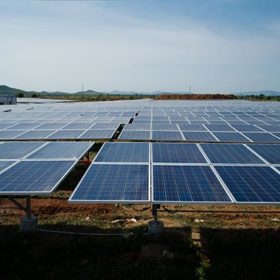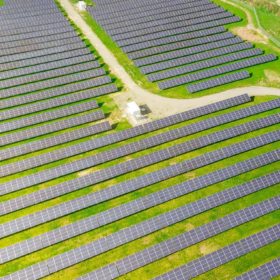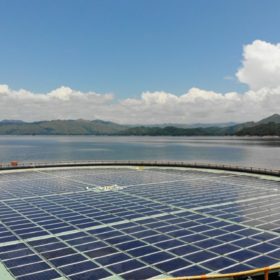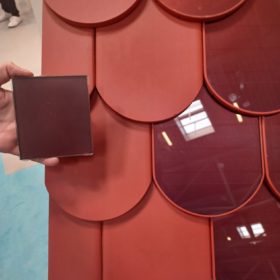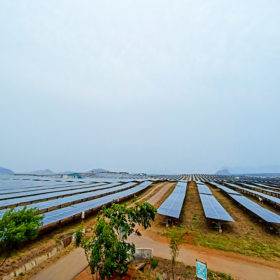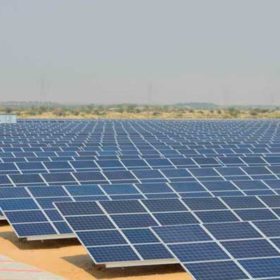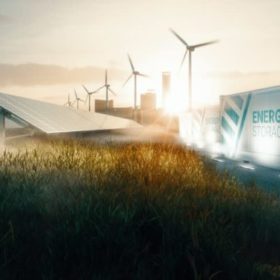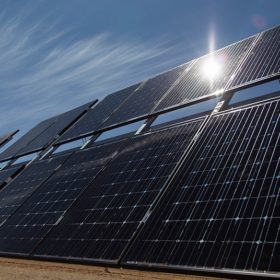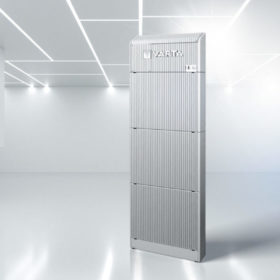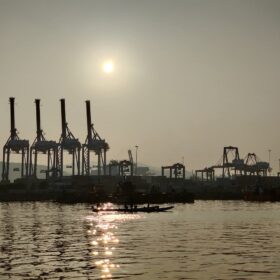Tata Power secures 300 MW solar project from NHPC
Tata Power Solar has secured an engineering, procurement and construction contract for a 300 MW solar project under India’s Central Public Sector Undertaking scheme. The project, awarded by state-owned hydropower producer NHPC, will be located in the state of Rajasthan.
Global solar demand to reach 190 GW this year, says IEA
The International Energy Agency expects solar, wind power, and other renewable energy technologies to achieve triple-digit global growth this year, with new PV additions set to reach almost 200 GW.
Small-scale floating PV with pumped hydro storage
Indian scientists have developed a system under which a pumped-hydro facility stores grid electricity during off-peak hours by pumping water to an upper reservoir. During peak hours, the system feeds the load, rather than taking power from the grid.
Terracotta solar tiles for historical buildings
Germany’s paXos, whose solar roof tiles were bought by Meyer Burger and unveiled last year, has shown off its new “Beaver Tail” terracotta solar tiles at Intersolar 2022.
Indian opportunity for renewable energy investments
In a keynote address at Intersolar Europe 2022, Indian Union Minister Bhagwant Khuba asked global investors to seize the opportunity to focus on India as it targets net-zero emissions by 2070 and 500 GW of installed non-fossil energy capacity by 2030.
Jakson wins O&M services for 255 MW of solar projects
Noida-headquartered Jakson Group has secured a three-year operations and maintenance contract for NTPC’s 250 MW solar project in Ananthapuram, Andhra Pradesh, as well as a contract for a 5 MW plant in the Andaman and Nicobar Islands.
NLC launches EPC tender for 100 MW solar project
State-run thermal energy giant NLC India has tendered the installation and commissioning of a grid-connected 100 MW (AC) solar project, in addition to a three-year operation and maintenance contract. Prospective developers can choose to install the PV capacity at any location in India. Bidding closes on June 8.
Hygenco commissions green hydrogen pilot plant powered by off-grid solar
India-based Hygenco has set up a green hydrogen generation plant on a build-own-operate basis in Madhya Pradesh. The alkaline electrolysis-based plant is co-located with a solar PV project in the state’s Ujjain district.
World Bank spells out how Pakistan can hit 13 GW of clean power
With its growing population and rapidly increasing energy needs, Pakistan’s energy security is undermined by the overriding share of imported fossil fuels in its energy mix. But, by turning to its untapped, tremendous solar, wind and biomass potential, the South Asian country could spur social and economic development, while improving energy access, says IRENA.
High-voltage residential battery from Varta
The new high-voltage Varta.wall storage device features an aluminum design and is available in capacities ranging from 10 kWh to 20 kWh. It also boasts an emergency power function.
